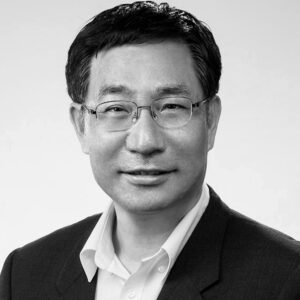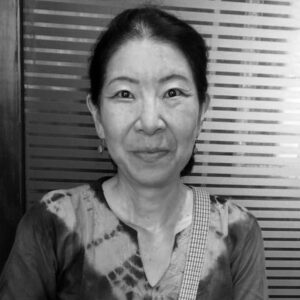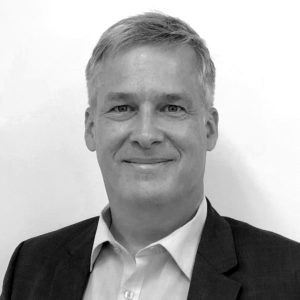Presentation Schedule

Education for Good Global Governance
Monday, March 24, 2025 14:30
Session: Plenary Session
Room: Orion Hall (5F)
Presentation Type: Featured Panel Session
Good governance involves reconciling conflicting interests, generating collective good, providing security for all, and respecting the rule of law. At the state level, these aspirations manifest in the instruments of government. Internationally, however, we aspire to achieve similar goals but in the absence of formal governing mechanisms. Global governance represents both the attempts to govern internationally and the production of policy guidelines and best practices for national governments. Global governance faces many challenges, including climate change, pandemics, demographic timebombs involving both growth and shrinkage of youth sectors, democratic recession, authoritarian populism, and the humanitarian crisis of forced migration and refugees. While the information and communication technology (ICT) revolution has democratised access to information, it has not necessarily led to the propagation of knowledge. Education plays a crucial role in allowing global citizens to make informed choices when it comes to the construction of governance structures and selection of their representatives. This panel focuses on the importance of dissemination of principles of good governance in the face of these challenges. Participants will address responsibilities towards others, including future generations, of those who govern, and of the citizens of the world.
Biographies
Jun Arima
Professor Jun Arima is the President of IAFOR, and the senior academic officer of the organisation. In this role, Professor Arima is the Honorary Chair of the International Academic Advisory Board, as well as both the Academic Governing Board and its Executive Committee. He also sits on the IAFOR Board of Directors.
Jun Arima was formerly Director General of the Japan External Trade Organization (JETRO), UK from 2011 to 2015 and Special Advisor on Global Environmental Affairs for the Ministry of Economy, Trade and Industry (METI), Japan, from 2011 to 2015. He has previously held various international energy/environment-related positions, including: Head of Division, Country Studies, International Energy Agency (IEA); Director, International Affairs Division, Agency of Natural Resources and Energy, METI; and Deputy Director General for Environmental Affairs at METI’s Industrial Science and Technology Policy and Environment Bureau. In the COP (UN Convention on Climate Change) 14, 15 and 16, he was Japanese Chief Negotiator for AWG-KP.
Since 2015 Jun Arima has been a Professor at the University of Tokyo, Japan, where he teaches Energy Security, International Energy Governance, and Environmental Policies in the Graduate School of Public Policy. (GraSPP). He is also currently a Consulting Fellow at the Japanese Research Institute of Economy, Trade and Industry (RIETI). He is also Executive Senior Fellow at the 21st Century Public Policy Institute, Principal Researcher at the International Environmental and Economic Institute (IEEI), Distinguished Senior Policy Fellow, at the Asia Pacific Institute of Research (APIR), Senior Policy Fellow on Energy and Environment, Economic Research Institute for ASEAN and East Asia (ERIA), and was the Lead Author, the 6th Assessment Report of the Intergovernmental Panel of Climate Change (IPCC).
Kyung Nam Shin
Dr Kyung Nam Shin serves as the Assistant Director-General and Head of the Investment & Policy Solutions Division at the Global Green Growth Institute (GGGI) in South Korea, a leading international organisation dedicated to promoting green growth and climate resilience. GGGI collaborates with approximately 70 countries, including 49 member countries.
He leads global programmes in areas such as green hydrogen, low-carbon transport, and the circular economy, which have the potential to mobilise from 500 million to over 1 billion USD. He played a key role in securing a project preparatory fund of approximately 25 million USD over five years, supporting the expansion of sustainable project development. Currently, he is establishing a blended finance facility that integrates public and private capital.
He has an extensive career spanning 15 years at the Asian Development Bank (ADB), where he played a pivotal role in structuring financing agreements and processing project loans in South Asian countries. Prior to joining ADB, he spent over 13 years at the Ministry of Finance and Economy of Korea, focusing on international finance and public resource management.
Following his tenure at ADB, he served as Director-General at the Green Technology Centre, a Korean government agency specialising in climate technology projects, including renewable energy and sustainable transport initiatives.
Yukari Ando
Yukari Ando is a Professor at the University of Toyama, Japan. Her field of research centres around international refugee law and international human rights law. She served as a programme adviser in the Cabinet Office of Japan, during which she was involved in the General Election in Sudan in 2010 and the Southern Sudan Referendum in 2011 as an international observer. She obtained her LLM from the University of Warwick, United Kingdom, and an MA in International Cooperation Studies from Nagoya University, Japan. She has also conducted research at the Paris Human Rights Centre (CRDH), Paris-Panthéon-Assas University, France. One of her English publications related to her speech is the chapter ‘Impacts on Refugee Law: Implications for Japanese Law, European Union Law and International Human Rights Law' in Global Impact of the Ukraine Conflict: Perspectives from International Law (Springer, 2023).
Brendan Howe (Moderator)
Brendan Howe is Dean and Professor of the Graduate School of International Studies, Ewha Womans University, South Korea, where he has also served two terms as Associate Dean and Department Chair. He is also the current President of the Asian Political and International Studies Association, and an Honorary Ambassador of Public Diplomacy and advisor for the Korean Ministry of Foreign Affairs. He has held visiting professorships and research fellowships at the East-West Center (where he is currently enjoying a second term as a POSCO Visiting Research Fellow (United States), the Freie Universität Berlin (Germany), De La Salle University (Philippines), The University of Sydney (Australia), Korea National Defence University (South Korea), Georgetown University (United States), Universiti Malaysia Sarawak (Malaysia), and Beijing Foreign Studies University (China).
Educated at the University of Oxford, the University of Kent at Canterbury (United Kingdom), Trinity College Dublin (Ireland), and Georgetown University (United States), his ongoing research agendas focus on traditional and non-traditional security in East Asia, human security, middle powers, public diplomacy, post-crisis development, comprehensive peacebuilding, and conflict transformation. He has authored, co-authored, or edited around 100 related publications, including Comprehensive Peacebuilding on the Korean Peninsula (Springer, 2023), Society and Democracy in South Korea and Indonesia (Palgrave, 2022), The Niche Diplomacy of Asian Middle Powers (Lexington Books, 2021), UN Governance: Peace and Human Security in Cambodia and Timor-Leste (Springer, 2020), Regional Cooperation for Peace and Development (Routledge, 2018), National Security, State Centricity, and Governance in East Asia (Springer, 2017), Peacekeeping and the Asia-Pacific (Brill, 2016), Democratic Governance in East Asia (Springer, 2015), Post-Conflict Development in East Asia (Ashgate, 2014), and The Protection and Promotion of Human Security in East Asia (Palgrave, 2013).
About the Presenter(s)
-Professor Jun Arima is the President of IAFOR, and the senior academic officer of the organisation.
-Dr Kyung Nam Shin serves as the Assistant Director-General and Head of the Investment & Policy Solutions Division at the Global Green Growth Institute (GGGI) in South Korea, a leading international organisation dedicated to promoting green growth and climate resilience.
-Yukari Ando is a Professor at the University of Toyama, Japan.
-Brendan Howe is Dean and Professor of the Graduate School of International Studies, Ewha Womans University, South Korea, where he has also served two terms as Associate Dean and Department Chair.
See this presentation on the full schedule – Tuesday Schedule









Comments
Powered by WP LinkPress